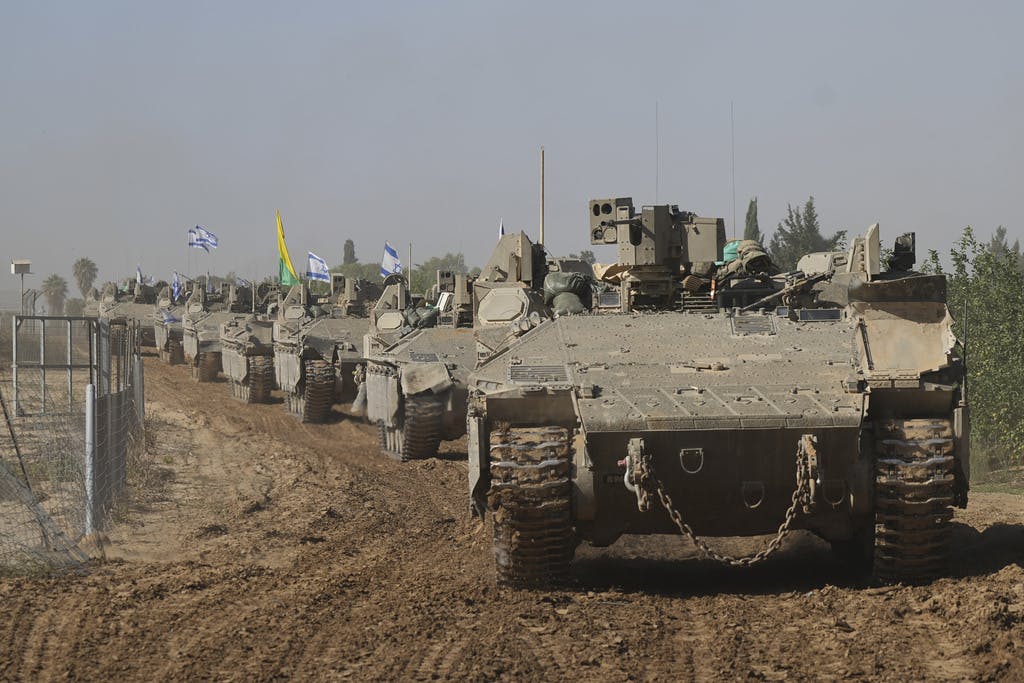American, British Researchers Complain Hamas War Is Worsening the ‘Global Climate Emergency’
The researchers claim that Israel’s air strikes and subsequent ground assault against terrorists at Gaza generated 281,000 metric tons of carbon dioxide during the first 60 days of the conflict.

Thousands of Israelis and Palestinians are dead, and tens of thousands are displaced. Dozens of civilians remain hostage to terrorists in Gaza. And what is a team of researchers in the United States and Great Britain worried about? The climate impact of the war in Israel.
In a breathless “exclusive” splashed across its front page Tuesday, the Guardian newspaper in London is reporting that the first month of the war at Gaza produced more “climate warming gases than 20 climate-vulnerable nations do in a year,” according to new research.
“The data, shared exclusively with the Guardian, provides the first, albeit conservative estimate of the carbon cost of the current conflict in Gaza, which is causing unprecedented human suffering, infrastructure damage and environmental catastrophe,” the left-leaning newspaper reports.
The president of the Copenhagen Consensus Center, Bjorn Lomborg, a frequent critic of climate alarmism, tells the Sun that the so-called “immense” effect of the Gaza war on carbon dioxide emissions translates to about one-tenth of one-millionth of a degree celsius of climate impact — about the same of that released, between the venues and the travel, of the most recent United Nations climate conference at Dubai last month.
“This really shows what happens when you have tunnel vision, and everything becomes climate change,” Mr. Lomborg says.
The research, which the Guardian says has yet to be peer-reviewed, is published Tuesday on the Social Science Research Network. One of its co-authors, a senior lecturer at Queen Mary, University of London named Benjamin Neimark, tells the Guardian that it is “only a snapshot of the larger military boot print of war,” adding that it is “a partial picture of the massive carbon emissions and wider toxic pollutants that will remain long after the fighting is over.”
The research suggests that Israel’s air strikes and subsequent ground assault against terrorists at Gaza generated 281,000 metric tons of carbon dioxide during the first 60 days of the conflict. Describing the number as probably a significant underestimate, the Guardian says that it is the equivalent of burning 150,000 metric tons of coal.
A portion of that total allegedly comes from emissions from fighter aircraft and the burning of fossil fuels by tanks and other military hardware. About half of the total can be blamed on American cargo planes flying materiél to Israel. Only about 713 tons of the carbon dioxide comes from the thousands of Hamas rockets being fired into civilian areas of Israel, a fact that the Guardian says underscores “the asymmetry of each side’s war machinery.”
Mr. Neimark, who was assisted by researchers at the University of Lancaster in the United Kingdom and a U.S.-based climate policy think tank called the Climate and Community Project, or CCP, tells the paper that the conflict is exacerbating the “global climate emergency” and must stop.
“The military’s environmental exceptionalism allows them to pollute with impunity, as if the carbon emissions spitting from their tanks and fighter jets don’t count,” he says. “This has to stop, to tackle the climate crisis we need accountability.”

